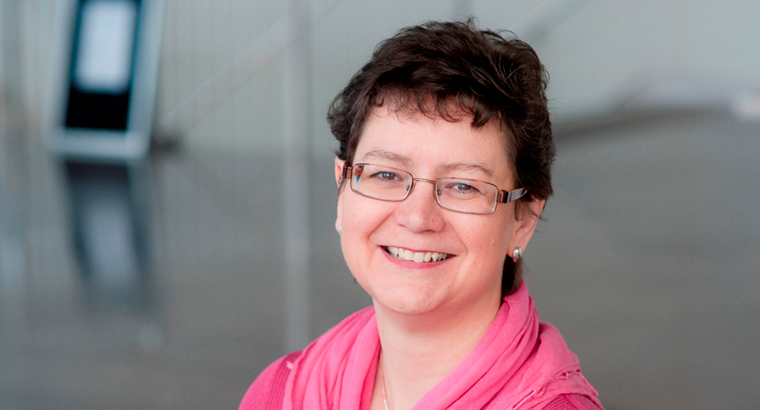News
Closing health gaps for people with mental illness
People with mental health concerns often have worse outcomes in physical health, but a change in the way care is funded and delivered could help.
 People with mental health issues often experience significant gaps in physical health outcomes.
People with mental health issues often experience significant gaps in physical health outcomes.
It is well-known that people with mental illness are also more likely to have problems with physical health – but many may still be surprised by the grim statistics.
‘If you are depressed, you are 30% more likely to get heart disease and 41% more likely to get diabetes,’ Associate Professor Dr Mark Morgan, Chair of the RACGP Expert Committee – Quality Care, said when speaking at the Equally Well Symposium earlier this year.
‘If you have heart disease or diabetes you are one and a half to two times more likely to be depressed.
‘If you have depression and one or both of these long-term medical conditions, you are more likely to die. One and a half times more likely with depression plus diabetes, and two to three times more likely for patient with heart disease and depression.
‘It is a bigger risk factor than continuing smoking.’
Dr Caroline Johnson, GP and Senior Lecturer in General Practice at the University of Melbourne, believes GPs are key in efforts to reduce the significant health gaps experienced by people with mental illness.
‘GPs are well placed to not only screen, but intervene early,’ she told newsGP.
‘For example, accepting that a patient with psychosis is on medication that increases their risk of metabolic syndrome allows the GP to proactively monitor the patient, but also refer them earlier for lifestyle interventions that are known to improve outcomes.’
However, Dr Johnson does acknowledge the fact it can be difficult for GPs and other health professionals to reduce this health gap, give it is a goal that often requires a holistic approach within what is a siloed health system.
‘The health system is often poorly designed to enable GPs to perform this role,’ she said. ‘There no doubt more needs to be done to improve the way different parts of the health sector work collaboratively.’
 Dr Caroline Johnson believes current funding and healthcare models can make it difficult for GPs to take a holistic approach to healthcare needs.
Dr Caroline Johnson believes current funding and healthcare models can make it difficult for GPs to take a holistic approach to healthcare needs.
Associate Professor Morgan also believes general practice is vital in this area.
‘GPs are the ideal people to be doing collaborative care for the management of depression alongside physical illness, and that is because we live it and do it every day,’ he told newsGP.
Associate Professor Morgan has explored in his own research different models of healthcare provision, such as collaborative care, that might provide more effective support for GPs to better balance patients’ physical and mental health.
‘Collaborative care is a model that introduces the managing of depression or mental illness by a non-clinician – such as a practice nurse – as the care manager, to do some care coordination, monitor severity at subsequent visits and be a patient coach,’ Associate Professor Morgan explained.
‘Collaborative care also introduces stepped care, where the level of intensity for the management of the mental illness increases according to severity, using a measurable scale of some description.’
While Associate Professor Morgan’s study delivered positive results for patients in improving depression and reducing risk factors for cardiovascular risk, collaborative care in general practice is not well supported by current funding and care models.
‘The fee-for-service model is really problematic when dealing with what we often refer to as a “wicked” problem. There is a lot of complexity here and this makes it more likely for people with serious mental illness to fall through the gaps,’ Dr Johnson said.
‘We need to be working at national and state levels and within our own communities to let everyone know how much more effectively GPs could do this work if the barriers we have highlighted over several years of advocacy are addressed.
‘Things like better access to allied health services for patients experiencing disadvantage; better communication from hospitals and mental health services back to GPs; better financial reward for taking on complex patients, who often have limited capacity to pay for their health care; fairer and more transparent social security systems so patients get the right financial support at the right time;, as well as the right types of support to reduce their risk of further physical health problems.’
 Associate Professor Mark Morgan supports a collaborative care model of healthcare to better balance physical and mental healthcare needs.
Associate Professor Mark Morgan supports a collaborative care model of healthcare to better balance physical and mental healthcare needs.
Associate Professor Morgan believes there is some possibility in the Health Care Home model, and that there have also been some helpful ideas among the Medicare Benefits Schedule (MBS) Review submissions, although he also has reservations.
‘Team-based care, collaborative care would thrive in a system which, in some ways, pays GPs for a block of care,’ he said. ‘And that could be fee-for-service through doing management plans and care planning.
‘MBS reviews recommended that the money for care planning be more evenly distributed between reviewing the care plan and doing an initial one, to try and encourage periodic plan proactive team-based care.
‘The Health Care Home trial went, of course, with block funding according to patient complexity. That’s really a form of capitation, and I’m not sure that we need to go that far, waiving fee-for-service. A cleverer use of fee-for-service would be ideal.’
Dr Johnson believes that while there is promise in proposals to restructure funding and delivery of healthcare in a more holistic way, it remains vital for policy designers to consult those who are directly involved.
‘The patient-centred medical home is one part of the puzzle worth exploring further, but even good ideas will flounder when implementation fails to heed the advice of the people living and working at the coalface: GPs and our patients,’ she said.
equally well MBS review mental health
newsGP weekly poll
Health practitioners found guilty of sexual misconduct will soon have the finding permanently recorded on their public register record. Do you support this change?